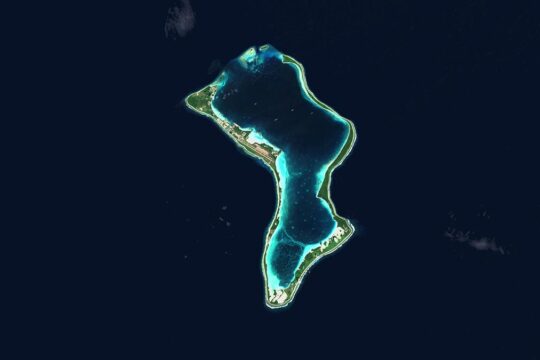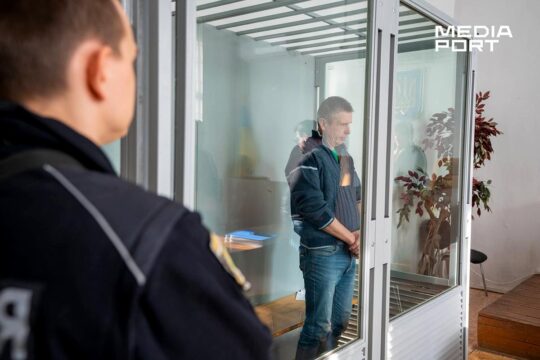The Hague-based war crimes tribunal for the former Yugoslavia is set to announce this week its most high-profile verdict yet, for former Bosnian Serb leader Radovan Karadzic.
Here are some key points about the 1990s conflicts that tore the Balkans apart.
- Background to the wars
Communist Yugoslavia, born at the end of World War II, was made up of six republics: Slovenia, Croatia, Serbia, Bosnia, Montenegro and Macedonia.
Following the death of its autocratic leader Josip Broz Tito in 1980, the Yugoslav federation found itself in deep political and economic crisis, with bickering between various ethnic groups and the rise of nationalism.
By the time the Berlin Wall fell in 1989, inter-ethnic relations in Yugoslavia were at breaking point, with nationalists mostly winning the first multi-party elections in the republics in 1990.
The most prosperous ones, Slovenia and Croatia, immediately started advocating decentralisation of Yugoslavia.
But the largest republic Serbia, led by Slobodan Milosevic, fiercely insisted on further centralisation.
Milosevic rallied fellow Serbs throughout Yugoslavia with calls for "all Serbs in one state", seen by pro-independence republics and the international community as a bid to create a Greater Serbia by annexing Serb-populated parts of Croatia and Bosnia.
- What sparked the conflicts
On June 25, 1991, the parliaments of Slovenia and Croatia declared independence, triggering the immediate deployment of the Belgrade-controlled Yugoslav army (JNA) towards the affected borders and airports.
After a ten-day conflict the JNA withdrew from ethnically homogenous Slovenia. But in Croatia, Serbian troops moved to fight on the side of Croatia's ethnic Serb rebels who opposed independence, launching a four-year war.
Meanwhile in Bosnia, the most ethnically and religiously diverse Yugoslav republic and home to four million people, Muslims and Croats organised an independence referendum.
This was fiercely opposed by Belgrade-backed Bosnian Serbs, who made up more than 30 percent of the population.
While Serbs boycotted the referendum, 60 percent of Bosnia's citizens voted for independence and Bosnia won international recognition on April 6, 1992.
Bosnian Serbs, led by Radovan Karadzic and backed by the JNA, immediately launched a widespread conflict, declaring territories under their control to belong to a Serb entity called Republika Srpska.
Shortly afterwards, Bosnian Croats turned against the Muslims or Bosniaks and the three sides fought each other for another three-and-a-half years.
- What happened during the war
The conflicts in Croatia and Bosnia claimed more than 120,000 lives. In Bosnia alone more than half of those in the pre-war population were forced out of their homes, either in campaigns of ethnic cleansing or bids to find safety.
Bosnia's capital Sarajevo was under siege for 44 months, during which its 350,000 residents struggled to get basic necessities. At least 10,000 were killed by sniping and shelling from Serbs in the surrounding mountains.
Thousands of people were held in camps on all three sides, where many were tortured, starved or executed. It is estimated that more than 20,000 women, mostly Muslims, were systematically raped.
The worst atrocity occurred in July 1995 when Bosnian Serb forces overran the eastern town of Srebrenica, slaughtering almost 8,000 Muslim men and boys in a massacre described by two international courts as genocide.
In Croatia, the eastern town of Vukovar was razed to the ground by the JNA and the medieval Adriatic town of Dubrovnik was severely damaged.
- How the conflicts ended
The atrocities eventually led NATO to launch massive air strikes on August 30, 1995, against Bosnian Serb military positions.
Following intense pressure from the US-led international community and three weeks of negotiations between leaders on each side at a US military base in Ohio, the so-called Dayton agreement was reached in November 1995.
The deal to end the wars divided Bosnia along ethnic lines into two semi-autonomous entities.
But the Balkan conflicts were not over, with war breaking out in 1998 in Serbia's southern province of Kosovo between pro-independence ethnic Albanian rebels and Serbia's armed forces.
That war ended in 1999 after an 11-week bombing campaign by NATO, by which time about 13,000 lives had been lost and hundreds of thousands had fled their homes.
Kosovo unilaterally declared independence in 2008, a move Serbia refuses to recognise.




